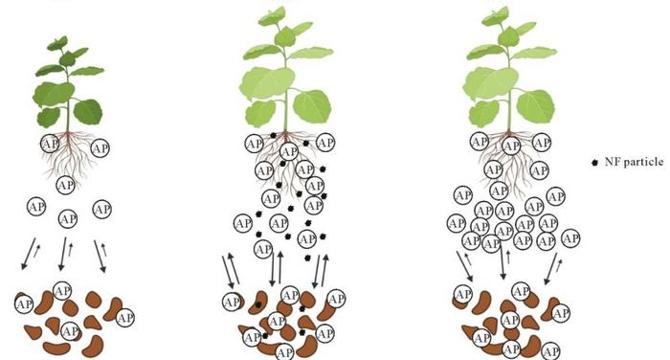Bioengineer
6d
284

Image Credit: Bioengineer
Nanoparticles Revolutionize Plant Growth: Small-Scale Fertilizers Match Traditional Phosphates’ Performance
- A study explores nanoscale iron phosphate fertilizer (FePNF) as a promising alternative to traditional phosphorus fertilizers for sustaining plant growth.
- FePNF demonstrates comparable effectiveness to triple superphosphate (TSP) in promoting cucumber plant growth under phosphorus-limited soil conditions.
- Despite lower soil-extractable phosphorus levels, FePNF supports plant growth similar to TSP, indicating sustained nutrient delivery.
- FePNF influences soil enzymatic activity and microbial community dynamics, showing unique interactions for nutrient mobilization.
- Microbial profiling indicates distinct communities associated with FePNF and TSP treatments, hinting at rhizosphere engineering potential.
- FePNF's slow-release mechanism and root interactions enhance phosphorus availability, potentially improving plant uptake efficiency.
- The controlled-release profile of FePNF suggests reduced environmental impact compared to traditional fertilizers.
- Nanofertilizers like FePNF offer a promising avenue for sustainable agriculture, refining nutrient management and reducing ecological footprint.
- Further field trials are needed to validate FePNF performance across diverse soil types and cropping systems.
- The study underscores the importance of understanding plant-soil-microbe interactions to harness the potential of nanofertilizers.
- FePNF exemplifies the move towards sustainable intensification in agriculture, delivering nutrients efficiently while preserving soil and water resources.
Read Full Article
17 Likes
For uninterrupted reading, download the app